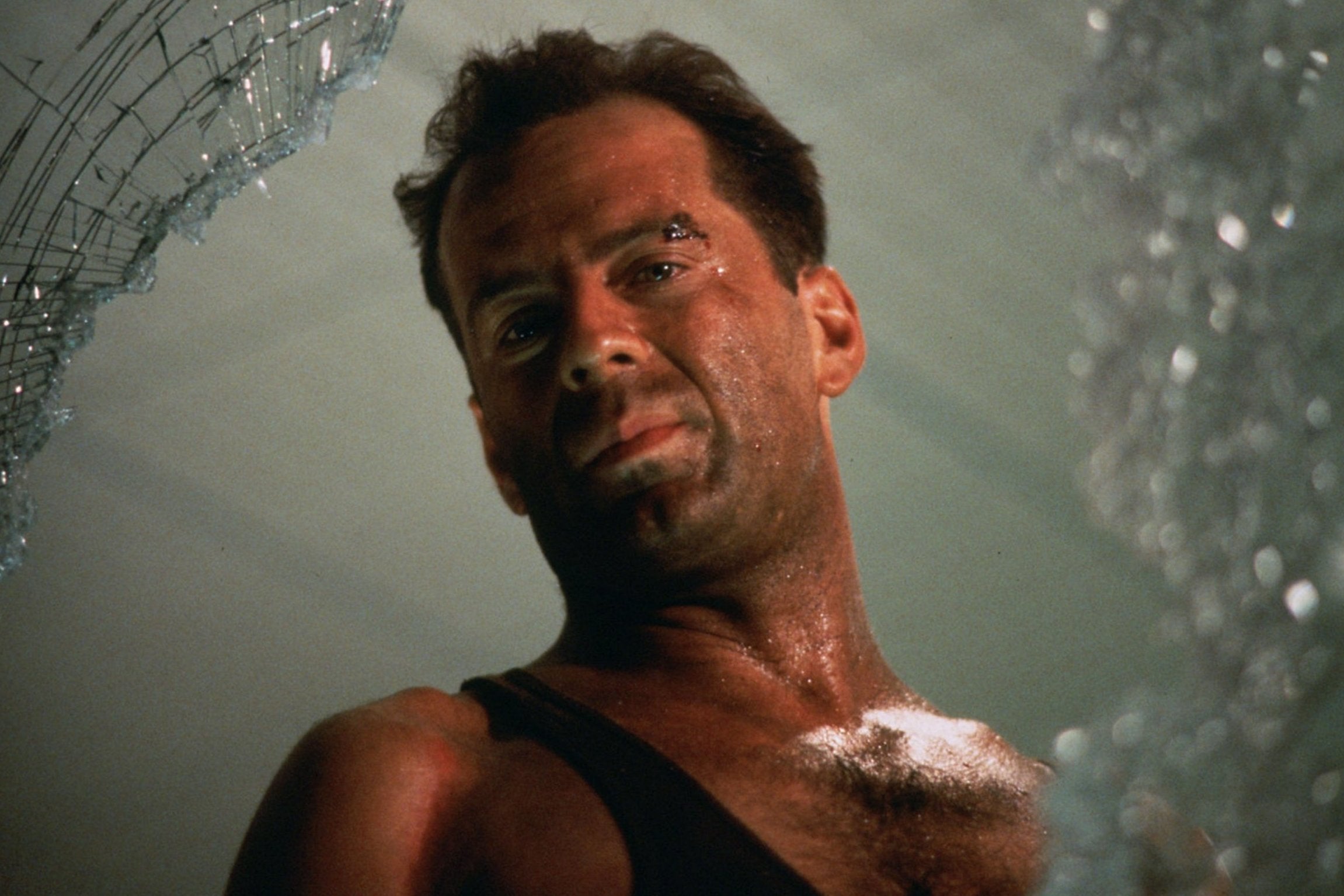Is Die Hard a Christmas film? Who cares
It’s a pointless battle that only reinforces our obsessions with nitpicking and categorising every piece of art we come across, argues Clarisse Loughrey


Your support helps us to tell the story
From reproductive rights to climate change to Big Tech, The Independent is on the ground when the story is developing. Whether it's investigating the financials of Elon Musk's pro-Trump PAC or producing our latest documentary, 'The A Word', which shines a light on the American women fighting for reproductive rights, we know how important it is to parse out the facts from the messaging.
At such a critical moment in US history, we need reporters on the ground. Your donation allows us to keep sending journalists to speak to both sides of the story.
The Independent is trusted by Americans across the entire political spectrum. And unlike many other quality news outlets, we choose not to lock Americans out of our reporting and analysis with paywalls. We believe quality journalism should be available to everyone, paid for by those who can afford it.
Your support makes all the difference.The holidays are meant to be a time of peace, but there’s one annual battle that continues to rage. Apparently, we just can’t get enough of arguing over whether Die Hard is or isn’t a Christmas film. Things reached their peak three years ago, when 21st Century Fox, the studio behind the 1988 action classic, released a new trailer declaring, tongue firmly in cheek, that Die Hard is the “greatest Christmas story ever told”. Next, Sky launched its own dedicated poll, hoping to settle the question once and for all. Here’s an alternative answer: it really doesn’t matter.
Not to be the resident Grinch of this whole debate, but there’s a passion and a persistence here that has me worried that something this inconsequential is actually tearing families apart this holiday season. Isn’t the moral of every holiday story that we should let the small things slide, and treasure the time we share together – whether or not that involves watching Bruce Willis wielding a machine gun?
We have those on the pro-team, who insist the film carries all the right hallmarks. It’s set on Christmas eve, at a Christmas office party, and follows a disenchanted NYPD detective called John McClane (Willis) as he reconciles with his estranged wife and kids, while also finding time to stop Hans Gruber's (Alan Rickman) multi-million dollar heist. It also has the requisite Christmas music, there’s snow on the ground, plus somebody even wears a Santa hat (a dead body, but the details are unimportant).
In the pro-team’s corner is screenwriter Steven E de Souza, who even pointed out the nativity story parallels. “A woman about to give birth features prominently”, he said, in reference to the character of Ginny, one of Hans’s hostages.
Those on the anti-team, however, argue that Die Hard is simply a film set at Christmas. To count Die Hard as a holiday classic would require us to do the same of LA Confidential (1997) and The Thin Man (1934), alongside almost every Shane Black-penned action film ever – from 2005’s Kiss Kiss Bang Bang to 2013’s Iron Man 3. It’s a categorisation that breeds chaos. And Willis himself agrees. At his own Comedy Central Roast, he made the defiant declaration: “Die Hard is not a Christmas movie.”
All that this nitpicking does, however, is feed into our dire culture of constant categorisation, as we’re compelled to shove every single piece of art in existence into a neat little box. Why would it matter if Die Hard was a Christmas film? According to de Souza, the film only happens to be set during the holiday period because, firstly, it stems from the source novel, Roderick Thorpe’s Nothing Lasts Forever, and, secondly, producer Joel Silver reckoned he could make extra cash if TV channels started showing Die Hard every December.
It’s a debate we’ll never get an answer to, because there will never be an answer to what actually constitutes a Christmas film. There’s no formula to be concocted that can measure the precise percentage of “good cheer” and, really, there’s a much simpler definition here: a Christmas film is whatever you like to watch at Christmas.
Sure, it can be It’s a Wonderful Life (1946), which is set at Christmas and is directly about the Christmas spirit; it can be Todd Haynes’s Carol (2015), a love story set during the holiday period and featuring exactly one memorable Santa hat; or it can be the Harry Potter movies, simply because they’re filled with the kind of sweetness and magic that feels appropriate for the season.
The “Christmas film” debate is just another example of how our rigorous fixation on the idea of genre is damaging our enjoyment of cinema. It’s in the same realm of judgement where a horror film can only be a horror film if it features a certain amount of jump scares, or where a comedy can only be a comedy if it features a certain number of jokes.
The only limit in film is our own imaginations. And our only limit, in the world of Christmas films, is what personally warms our souls on all those cold winter nights. So let’s find a better holiday pop culture debate for the dinner table this Christmas. Like whether Kevin McCallister from Home Alone is a raging psychopath or not (he is).
Join our commenting forum
Join thought-provoking conversations, follow other Independent readers and see their replies
Comments